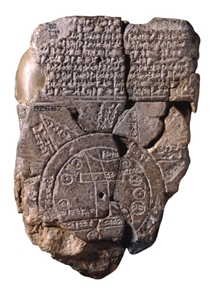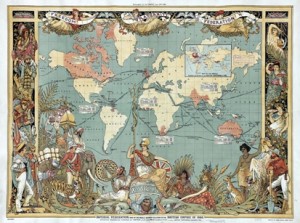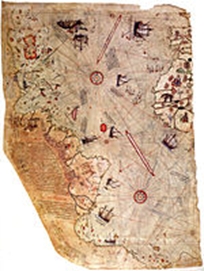 World history is macrohistory – the study of human history across boundaries. World historians examine developments that go beyond single states, cultures, and regions, including movements (of peoples, cultures, commodities, diseases, and ideas), cross-cultural contact, and exchange. To study the big picture, they not only explore connections, but also often engage in comparative history. World history is concerned with both pre-modern and modern eras, and our world history cluster includes faculty with specializations from the ancient world through the twentieth century.
World history is macrohistory – the study of human history across boundaries. World historians examine developments that go beyond single states, cultures, and regions, including movements (of peoples, cultures, commodities, diseases, and ideas), cross-cultural contact, and exchange. To study the big picture, they not only explore connections, but also often engage in comparative history. World history is concerned with both pre-modern and modern eras, and our world history cluster includes faculty with specializations from the ancient world through the twentieth century.

Faculty
Sean Adams (U.S. history, economic history)
Fernanda Bretones Lane (Caribbean history)
Nina Caputo (medieval history, Jewish history)
Elizabeth Dale (U.S. history, consitutional and legal history)
Jessica Harland-Jacobs (modern Britain and British empire, Atlantic world)
Nancy Rose Hunt (Africa, gender, medicine)
Matthew Jacobs (U.S. foreign relations, Middle East)
Philip Janzen (African history)
World history encompasses multiple approaches to the past, including international, transnational, transregional, and global history. “International history” tends to focus on the interactions among states, including trade, war, international organizations, and diplomacy. “Transnational history” subject matter includes cross-border interactions that are not primarily organized by national states, such as the work of NGOs, epistemic communities, social movements, disaporas, and multinational corporations. “Transregional history” refers to histories that integrate two or more “area studies” fields in a single (often aquatic) geospace of inquiry, such as the Mediterranean, the Atlantic, and the Pacific Rim. “Global history” connotes the study of subjects that are totalizing or “globalizing” in scope, such as commodities, communications, and environmental trends. Historians at UF practice, and train graduate students in, all these approaches to world history.


Graduate Seminars
New Approaches to the World: Making Sense of International and Transnational History
Readings in International History
Postcolonial Theories
Atlantic History and Beyond
Empire
Empires and Religion
Europe and the World, 1350-1750
Gender and Sexuality in International and Transnational History
Mission, Conversion, Christianization, 200-1000
Problems in Comparative Legal History
See also our thematic minor field in world history.